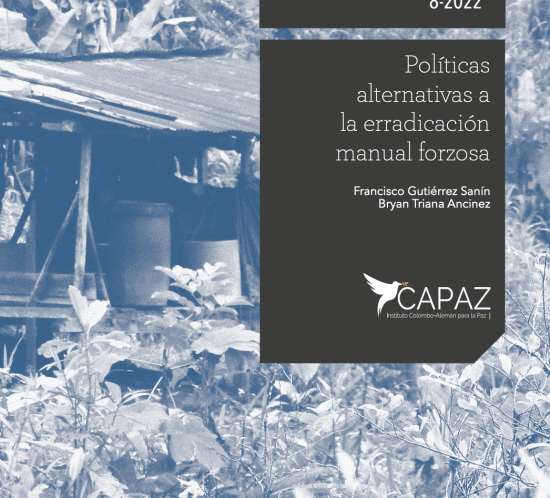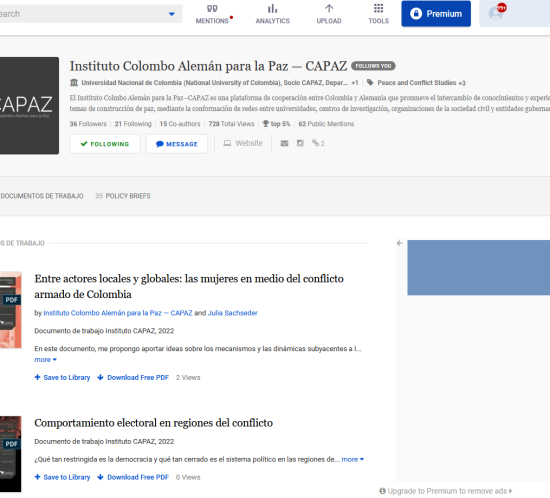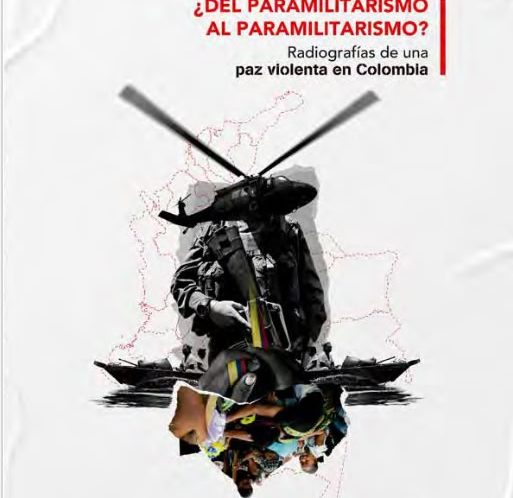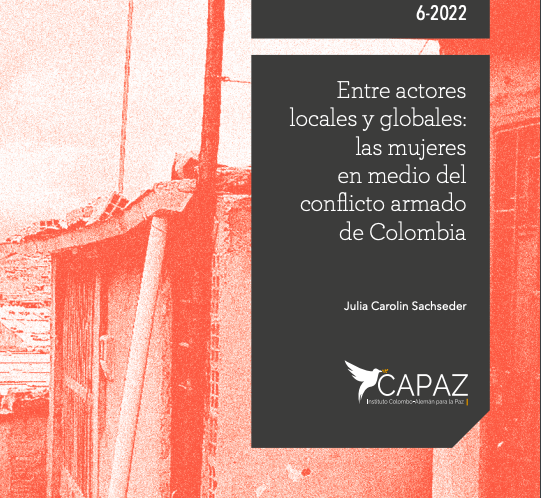29. March 2023

Publicación Tag
7. December 2022
Alternatives to forced manual eradication in the latest CAPAZ Policy Brief
The latest CAPAZ policy brief is entitled “Policy alternatives to forced manual eradication”. In this text, the authors analyse the results of forced manual eradication and put forward recommendations to reduce its negative social impacts and reduce illicit crops through…
10. October 2022
All CAPAZ publications will be made available on Academia.edu starting in October!
The CAPAZ Institute maintains its commitment to the open and free dissemination of research work on peace in Colombia and to this end announces its new Academia.edu account. This academic dissemination platform has nearly 114 million users and more than…
13. September 2022
From paramilitarism to paramilitarism, snapshots of a violent peace in Colombia
This publication has just been presented by the Andean Regional Office of the Rosa Luxemburg Foundation and the CAPAZ Institute to answer questions including: Are we experiencing a resurgence of paramilitarism in Colombia? What are its old features and how…
19. July 2022







